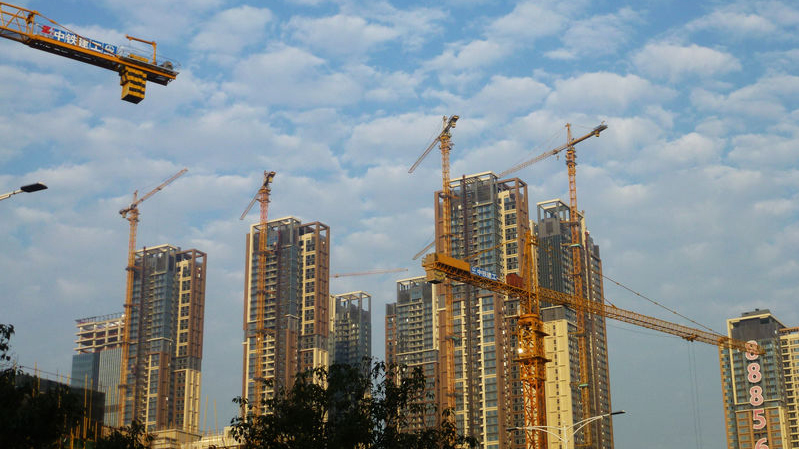3 pitfalls to avoid when buying properties outside of Hong Kong

The Greater Bay Area is a hot spot for Hong Kong property buyers. Consumers should remain cautious as buying a property outside of Hong Kong is much like "buying a pig in a poke".
Mr Chin30/12/2022
More and more people are buying properties located outside of Hong Kong in recent years, and the Greater Bay Area is one of the favourites. Be that property site visits that were popular a few years ago, online videos or virtual live tours in the post-pandemic era, Hong Kong buyers remain eager to participate and enthusiastic about properties outside of Hong Kong.
However, buying a property outside of Hong Kong is much like “buying a pig in a poke”, especially when the development is still under construction. When something goes wrong, it may be difficult to recover the losses. While properties outside of Hong Kong may seem more affordable than the ones in Hong Kong, it is still a major investment and involves many complicated issues that call for extra cautions. If you are interested in buying a property outside of Hong Kong, you should take note of the below three major risks:
1. From uncompleted to abandoned
Many properties outside of Hong Kong are sold as off-plan developments that could take several years to complete, uncertainties may emerge along the way. If a development cannot be completed due to reasons such as financial difficulties of the developer, disputes over property rights and unsatisfactory construction standards, the project may end up being abandoned. Amid the deteriorating economic backdrop in recent years, many developers outside of Hong Kong are having liquidity issues and leading to heightened risk of them not being able to complete the projects. Properties are real estates, and their transactions are governed by the laws of the jurisdictions where the properties are located. As laws and judicial procedures vary from place to place, it may be difficult to recover the losses caused by abandoned or subpar properties from afar. Victims may not even be able to file a complaint and suffer substantial losses at the end.
2. Higher risk of misleading information
Many developments outside of Hong Kong may feature their properties’ prime locations, well-established transportation networks, high investment returns and promising concepts like “one-hour living circle”, “newly-developed area”, “vacation destination” and “Hong Kong-like community”. However, these concepts may just be plans in the pipeline, and there is no telling if they will materialise or even be relevant to the advertised projects at all. Information in these marketing materials may be biased and not telling the truth. Consumers are typically unfamiliar with the local market, nor be able to physically visit the development. If consumers make a rash decision purely based on marketing materials provided by the developers or sales agents, there is a high chance that they may not be getting what they expect in return.
3. "Sale and leaseback" arrangements are risky
Some developments outside of Hong Kong may feature high return arrangements such as sale and leaseback or entrusted property management to attract potential buyers. Usually, a buyer will enter into an agreement with the developer or a third party to receive rental returns within a specific period of time. According to the laws in Mainland China, developers are not allowed to arrange leaseback during the sale process. As such, they would sign the leaseback agreements with buyers through associated companies which may be of smaller scales. If such associated companies are not operated properly, they may not be able to perform their obligations. Over the past few years, some Hong Kong property owners have complained about failing to receive the promised rental returns. There are uncertainties with these so-called guaranteed rental returns, and investors should think twice before making any decisions. (Learn more about sale and leaseback arrangement)
To reduce the risks associated with buying properties outside of Hong Kong, consumers should do their research and consider the risks carefully. You should gain a clear understanding of the developer’s background, financial condition and operations, as well as the local real estate regulations and consumer protection measures. Consumers should visit the development site in person to learn more about the actual location, project status, surroundings, transportation networks, infrastructure and local community. You should also choose carefully between buying completed and off-plan properties. Equally important is gaining a good understanding of the local economy, real estate market outlook, rental market, home buying process and cost, mortgage application process, taxes and restrictions on non-local buyers.
Consumers should note that in principle, the power of Hong Kong regulatory bodies may not cover transactions taking place outside of Hong Kong. For example, transactions involving properties outside of Hong Kong are not subject to the regulation of the Estate Agents Authority, and the existing laws and regulations do not mandate transactions involving properties outside of Hong Kong to be handled by licensed estate agents. While properties outside of Hong Kong offered by unlicensed estate agents are not governed by the Estate Agents Authority, it does not mean that buying a property outside of Hong Kong through a licensed estate agent is completely safe, even if the agent follows the rules, consumers still have to bear their own risks should something happen, such as delayed delivery. Buying a property outside of Hong Kong involves complicated matters, and consumers must consider the risks and act carefully.





